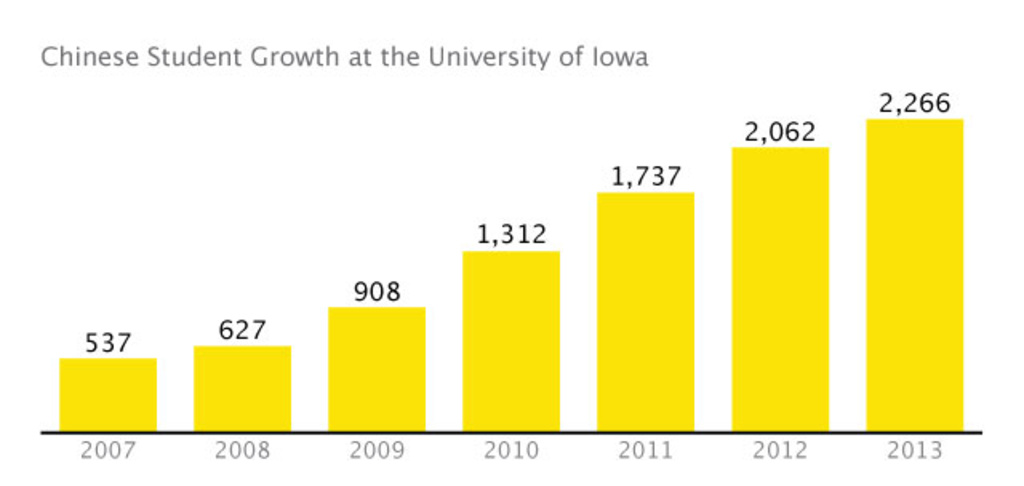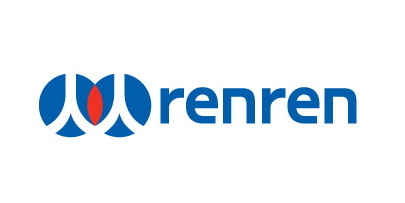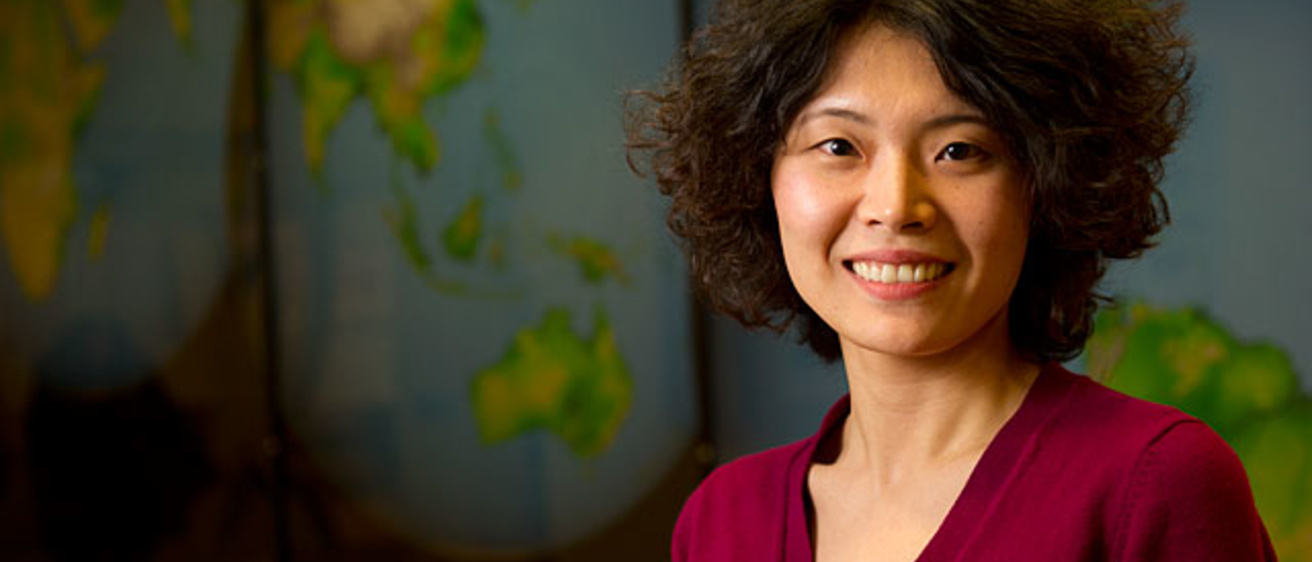Suyun Ma was strolling down the street in Iowa City last fall when she bumped into a famous Chinese writer.
The fiction writer and poet, A Lai, was participating in the University of Iowa’s world-famous International Writing Program. It’s the kind of encounter Ma says she never would have made in her hometown of Hangzhou, the capital and largest city of Zhejiang Province in Eastern China with a population of more than 8 million people.
She later posted on Facebook, “One of the reasons I love Iowa City is that you may run into the best Chinese writers when walking on campus. This time, it's A Lai!"
Ma, who was recently hired as UI International Programs’ first external global relations coordinator, now uses Chinese social media platforms to communicate and cultivate stronger relationships with prospective Chinese students and their parents as well as UI’s growing alumni base in Asia.
The number of Chinese students studying at the UI has surged in recent years, reflecting a national trend, and the UI is a leader nationally in using these Chinese social media platforms.

To learn more about study abroad opportunities in China, select "China" from the drop down menu on this website.
At the UI, enrollment has grown from 537 Chinese students in the fall of 2007 to 2,266 students in fall 2013. UI students are also showing greater interest in studying abroad in China, with 37 UI students studying there in the 2011-12 academic year, making it one of the top 10 most popular study abroad destinations for UI study abroad.
Ma is one of those international students, who came to the UI in 2008 to pursue a master’s degree and a doctorate in urban and regional planning with a focus on transportation planning. She is currently finishing her dissertation and auditing a UI mass communication seminar on online content management and strategy while working full-time in her new position.
Ma shares the UI’s vision for using Chinese social media, some of the greatest joys of her job, and how these endeavors will help strengthen Iowa's sister state relationship with Hebei Province.
Suyun, your position as global external relations coordinator in International Programs is brand new. What’s the focus of your work?

One of our most important goals is to re-establish and maintain connections with the thousands of successful UI grads who are living all over the world. Once our students graduate, we often lose contact with them, particularly if they decide to live outside the U.S. So, we want to do a better job of maintaining our connections with international alumni and one way to do that is through social media. I manage the university accounts of various international social media platforms including RenRen, Weibo, and Youku (like YouTube) and we will soon open an account on the hugely popular international platform WeChat.
I also assist the Associate Provost and Dean of International Programs Downing Thomas in coordinating international alumni events or activities and help to facilitate international educational collaborations.
Can you tell me a little bit about your educational and career background and what brought you to this position?
I have a bachelor’s degree in management sciences from the Nanjing University of Finance and Economics in Nanjing, China, and worked for one of the biggest state-owned companies there. We had to report everything to our parent company and the government and so my major responsibility was writing comprehensive reports and I even managed our newsletter. Even though it wasn’t online, the way that I managed the content and collected and delivered information is very closely related to my current work. I also worked as a research assistant in the UI Public Policy Center while I was working on my doctorate.
What are your initial goals and who are the main audiences that you are trying to reach?
We are targeting various audiences including prospective students, alumni, friends, and even parents. I think that the University of Iowa has already made many very successful international connections and one of my initial goals is to leverage those existing connections and ongoing activities. My second goal is to develop new communication strategies and build new relationships through our social media accounts. Using those, we can enhance the university’s visibility at the global stage. Another goal is to facilitate more international educational collaborations with institutions overseas.
Will you be using social media to reach out to international alumni? Which social media platforms are you utilizing?

We just created the accounts in December and so most followers are students who are here but we hope to expand that to lots of people in other countries. We have followers on RenRen, which is like Facebook, and on Weibo, which is like Twitter. We are about to launch WeChat, which is for smart phones. It’s a mobile application because almost everyone uses smart phones in China. I’ll also be working with the UI Alumni Association and University Communications and Marketing for expanded reach through existing UI social media platforms.
I understand that the UI is really leading efforts in using these social media for alumni engagement abroad. We aren’t the first university to be using Weibo, but we are one of the first to use Renren. Can you talk a little bit more about this?
There are a few other universities that have Weibo accounts but not many have RenRen accounts. The idea of starting a RenRen account actually originated with my supervisor Joan Kjaer’s visit to Beijing last summer. She met with the international marketing director for RenRen and was inspired by the possibilities RenRen offered the UI to reach multiple demographic groups and showcase the UI’s unique qualities. RenRen, which is similar to Facebook, was very interested in helping us set up an account and we’ve been building up our presence for a couple of months now. I think the account administrators have more flexibility and options so we can actually put several sections on one RenRen account. We have a daily news section, and a section for students, for admissions, for alumni, and for parents.
What sorts of information are you sharing on these social media channels to inform and engage people?
I look at most social media accounts and the UI web page and share information about what activities are happening on campus and those activities that I think international students will be interested in knowing about. I do shout outs for new research or awards, and I also share videos created by the university so I even make some translations with Chinese subtitles on those videos. We think prospective students and their parents can watch those videos so if their English skills are not that good, they can still learn about the University of Iowa.
The ability to speak Mandarin Chinese was a requirement for this position. Does that mean that many of your efforts will be focused on Asia?
The UI is having more and more international students, and students from Asia make up the highest number in that international population so that’s why the main focus is in Asia, but alumni relations is broader because WeChat is also very popular in South America. We are thinking about having an English and Spanish account for this market.
Will you be working with other departments across campus?
Yes. I will be working with staff in UI Admissions so when they make trips to China and other countries for recruiting, they can also promote our social media accounts to people actually living outside of the U.S. I am also working with the UI Alumni Association and will work with the UI Foundation. I am also working with University Communication and Marketing on creating videos in Chinese so it’s not just videos in English with Chinese subtitles and social media message coordination.
You’ve recently returned from an official trip to China with UI faculty and administrators. Tell me a little bit about this trip.
Our main goal was to establish academic collaborations between universities in Hebei and the UI. Beyond that, because Iowa already has a sister state relationship with Hebei, we will also have state and province level collaborations. We also had an alumni event in Beijing and so we met with both new alumni and more established alumni. They all had very successful careers. Most of them had senior level positions and are leaders of companies, and they give the UI full credit for their training and education to help them succeed.
We have a vibrant and large Chinese community on our campus. How do you see U.S. students benefiting from this group’s presence and participation on campus?
I think we definitely bring diversity in terms of culture, and also I think when we have more international students, we will have more international collaboration in our teaching and research. It will benefit the research profile of both students and faculty, and it will help shape new directions for research and teaching. We tend to think in a more international way. It’s very beneficial for students because this helps prepare them to be leaders in the global community in the future. We also have students who are interested in living or working overseas in the future, and so when we have more international students and alumni, they can actually help provide good internship and work opportunities for UI domestic students.
The UI, after all, is developing innovative academic initiatives all the time to broaden the outlook and expand international opportunities for students. For example, the Tippie College of Business is sponsoring a new study abroad program this year in China called Business and Culture in China. This course will give students a better understanding of the world’s second largest economy and build bridges between domestic and international students.
What do you most enjoy about your position so far?
I enjoy being part of the communications and relations efforts in International Programs and across campus. Before I started this job, I thought of education as just about teaching, research, and technology, and now I realize that good communications and relations can make our education better, especially when we are committed to internationalization.
How will this kind of international engagement make a long-term difference to the UI?
This will help our university build a stronger global presence. We are already one of the most internationalized universities in this country, but we want to move even further in that direction. Educational exchange always brings mutual benefits for UI faculty and students and our partners in other countries.
